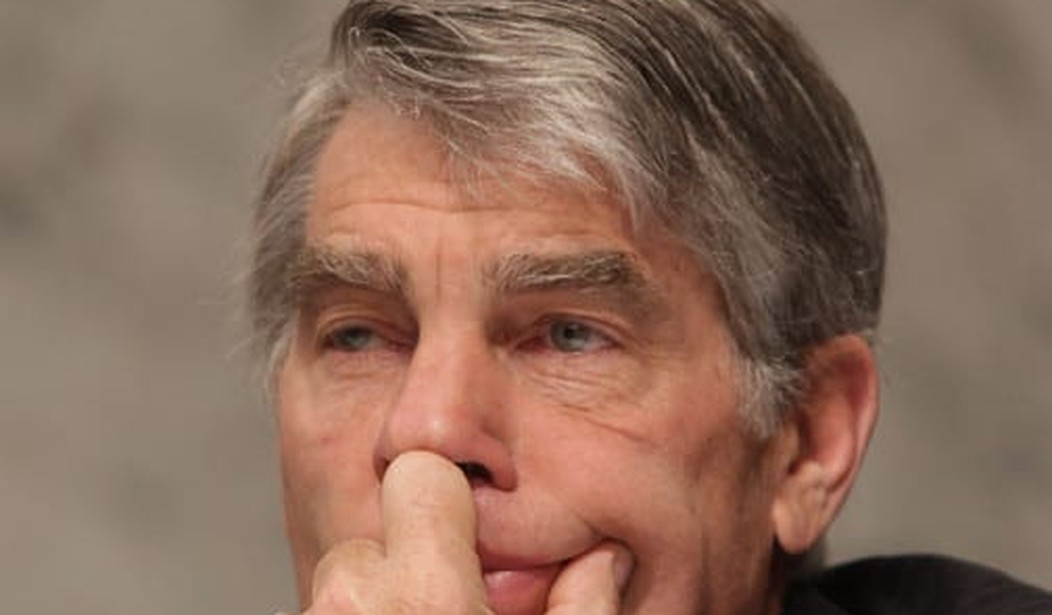Sen.-elect Cory Gardner (R-Colo.) said during his campaign that it “was not too late to repeal and replace Obamacare,” and that is at the top of his agenda as the congressman waits to move into his new office.
Bringing an end to Obamacare is just one of the issues on which Gardner and his fellow Republicans will find themselves in a political donnybrook with the Obama administration that could result in a long string of presidential vetoes.
Immigration, the Keystone XL pipeline and tax reform are also expected to be debated.
But first, Gardner told supporters the night of his decisive victory over Democrat Sen. Mark Udall that his win was not about “Democrat versus Republican,” it was about “fixing Washington and building a government we can be proud of again.”
He also pointed out that he and his fellow Colorado Republicans had become used to saying “wait until the next election” — after GOP candidates had fallen to Democrats.
“Well, that election — it finally happened,” Gardner told his cheering audience. “Tonight, we shocked the Senate. You shocked the Senate. And your message has been heard from Nevada to Pennsylvania Avenue.”
Gardner, who served in the Colorado legislature for five years before being elected to the U.S. House, returned to his bipartisan theme for an interview on NPR’s Morning Edition the day after that victory speech.
Gardner told NPR’s Steve Inskeep he did not see the GOP victories as a “mandate” for the Republican Party.
“What we have a mandate for is putting solutions forward — coming together as Republicans and Democrats on ideas on the economy, on energy, on other issues, put them on the president’s desk and try to end the gridlock, end the dysfunction and get back to a place that does its job,” Gardner said.
While he told his supporters that the message of his victory Washington should hear is “get your job done and get out of the way,” Gardner also outlined some legislative issues during his NPR interview that will put him at odds with the Obama administration, such as Obamacare.
However, Gardner refused to say whether he would vote for federal “personhood” legislation should it come before the Senate.
Gardner’s support for a personhood constitutional amendment was the key issue Udall tried to use to win re-election. Gardner told Inskeep he only signed on to the legislation to affirm his pro-life beliefs.
“But what Senator Udall found out is that the people of Colorado want to talk about more than just one issue,” said Gardner. “Senator Udall focused his entire campaign as a social-issues warrior, and that was rejected by the people of Colorado.”
Gardner defeated Udall 49 to 45 percent, even though polls up until the day of the election called the contest too close to call.
The Real Clear Politics average of polls — utilizing polling aggregation, the new mantra of polling alchemy — showed the Udall-Gardner race as a toss-up. Quinnipiac University and Public Policy Polling surveys released the day before the election had Gardner winning, but by less than three points.
Udall, while he told his supporters that he wished Gardner the best, also remembered what his father, Sen. Mo Udall, had said after losing an election: “The voters have spoken, the blankety-blanks.”
Meanwhile in the Colorado governor’s election, Gov. John Hickenlooper (R-Colo.) was re-elected, posting a 48 percent to 47 percent victory, winning by a margin of less than 26,000 votes out of the 1.9 million cast in the state’s first all-mail election.
The race was so tight that Republican Bob Beauprez did not concede until Wednesday afternoon, with just a few rural counties yet to report their election results.
Hickenlooper told Rachel Maddow on MSNBC that his campaign’s internal polling showed the Colorado gubernatorial and Senate races would both be extremely close, as they turned out to be.
He does not see a GOP wave sweeping over his state.
“We (Colorado) are an interesting test case for the nation,” he explained. “Colorado is one-third Democrat, one-third Republican and one-third independent.”
Hickenlooper pinned Udall’s defeat on a “headwind that hurt anyone connected with Washington” and said he was helped by Colorado’s economy, which is the fastest-growing economy in the U.S.
“That only helped me instead of Mark (Udall) because I am here, and he is not,” said Hickenlooper.
As Hickenlooper was declaring victory Wednesday, he didn’t know what kind of a legislature he would be working with. Mail-in ballots were still being counted. However, it looked like the GOP might be on its way to taking control of the Colorado state Senate and House.
The Colorado election was not only a referendum on the Obama presidency or the Hickenlooper administration; it was also a referendum on the idea of running an entire statewide election by mail-in ballots.
Some political observers thought people being able to go to their kitchen tables to vote and then drop their ballots in a nearby mailbox would boost turnout of Democrats who rarely show up for midterm elections.
As Fox31 Denver reported, although a complete analysis is yet to be completed, it seems mail-in balloting boosted turnout for senior citizens, a demographic that usually votes Republican.








Join the conversation as a VIP Member